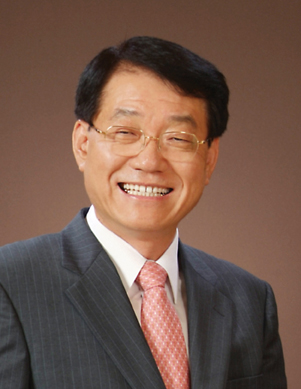Advancing Korea through Standardization in 2009
 The Korean Agency for Technology and Standards (KATS) plays an important role in serving the public; our clients comprise government bodies, private enterprises and all citizens. On the external side, KATS represents the nation to bodies such as the International Organization for Standardization (ISO) and the International Electrotechnical Commission, as well as in Technical Barriers to Trade (TBT)-related negotiations with the World Trade Organization and the Organization for Economic Cooperation and Development; our efforts have been instrumental in eliminating TBT. We are also responsible for addressing various domestic and international issues arising from the increasing volume of global trade and the rapid trend toward market globalization.
The Korean Agency for Technology and Standards (KATS) plays an important role in serving the public; our clients comprise government bodies, private enterprises and all citizens. On the external side, KATS represents the nation to bodies such as the International Organization for Standardization (ISO) and the International Electrotechnical Commission, as well as in Technical Barriers to Trade (TBT)-related negotiations with the World Trade Organization and the Organization for Economic Cooperation and Development; our efforts have been instrumental in eliminating TBT. We are also responsible for addressing various domestic and international issues arising from the increasing volume of global trade and the rapid trend toward market globalization.
Beginning this year, KATS plans to address the growing need for legislation to ensure product safety across a broad range of industries. This legislation will specify appropriate administrative measures to ensure that safety checks are carried out in a systematic way. To this end, the organization is set to announce a five-year plan to remove unsafe products from the market and prevent accidents that threaten lives and careers.
In August 2008, in cooperation with the Prime Minister's Office, KATS introduced a national certification mark which has greatly simplified procedures for businesses by eliminating overlapping requirements for product certification. Many countries have implemented similar schemes to facilitate deregulation; Europe's CE Marking system is a representative example. Germany and the Netherlands have been expanding standardization in areas such as health and food safety since 2003. The United States, for its part, has been using federal standards on firefighting and health and safety as tools for clarifying the content and criteria of state regulations.
Additionally, KATS will assess domestic technical regulations to determine whether they conform to international standards. In cases where regulations are deemed unnecessary or burdensome, we will work with the Regulatory Reform Committee to make the appropriate changes. At the same time, we will recommend amelioration of any regulations that fall short of international standards by coordinating with the National Standards Council.
Furthermore, we will carry out public opinion surveys to find out what kinds of standards are needed to improve the daily lives of Koreans. For example, our "Size Korea" project provided industries with valuable data on body size so that products are designed with the average Korean body in mind; the resulting database has registered more than 7,000 downloads per year.
However, KATS requires cooperation from other government bodies to establish standards in additional areas where there is a high demand, such as traffic signs and credit card fees. In cases such as these, the National Standards Council is responsible for coordinating among the respective government Ministries.
KATS has also played an active role in the development of future growth engines. Competition has intensified in the global market, as countries vie to take the lead in establishing international standards for green technologies such as wind power and solar power. As these new areas require huge amounts of initial investment and it is costly to replace existing systems with new ones, adequate analysis of the economic feasibility of green technologies is absolutely essential.
Once an area has been deemed economically feasible, standardization should accompany technology development efforts; KATS intends to press for a "green standards strategy" with that goal in mind. As a first step, we will pursue "diplomatic approach to international standardization activity" by hosting international meetings on standards for green technologies.
We plan to hold a number of such meetings in 2009, with an emphasis on safety issues: In October we will discuss ISO TC197, which concerns hydrogen technologies; in May the topic will be IEC TC114, which concerns marine energy; and we will address fuel cell technology in June at a meeting on IEC TC105.
Success in international standardization depends on a proactive response by the private sector. To encourage participation from outside the government, KATS plans to set up an independent panel of experts to advise policies on standards and patents; revise relevant systems; nurture experts in the area of standards and patents; and establish a standards and patents portal site.
We also plan to designate a number of bodies, called "cooperating organizations for standards development," to encourage standardization efforts within the private sector. These bodies will be responsible for implementing the sectoral standards of international standard-setting bodies such as ASTM International (previously the American Society for Testing and Materials) and the Institute of Electrical and Electronics Engineers. The government will establish mid- and long-term strategies to support these efforts.
To ensure that the KATS staff is fully abreast of global standards, we are dispatching employees abroad to participate in short-term training programs; these will supplement the existing education we offer in the areas of standards and English language. nw
By Nam Insuk,
administrator of the Korean Agency for Technology and Standards
3Fl, 292-47, Shindang 6-dong, Chung-gu, Seoul, Korea 100-456
Tel : 82-2-2235-6114 / Fax : 82-2-2235-0799